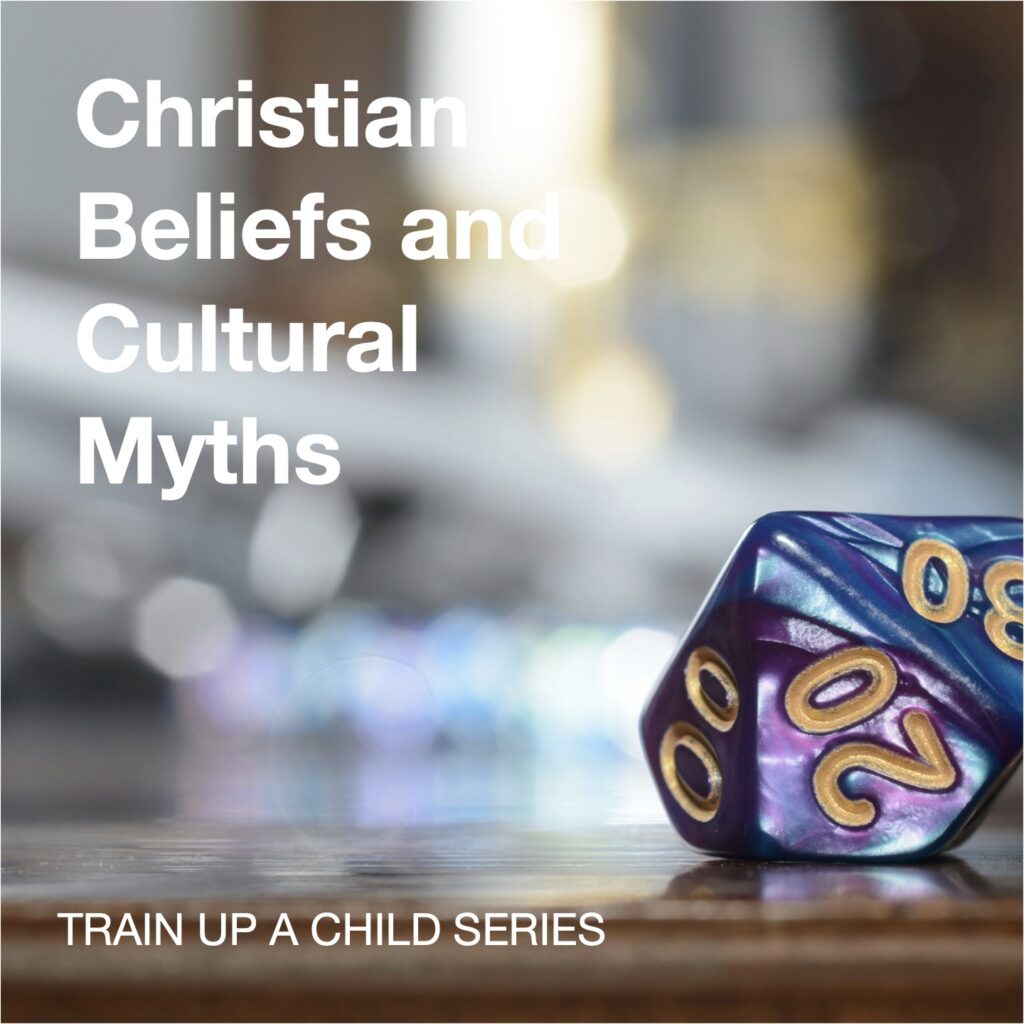By Chaplain Ted
Train Up A Child Series
Cultural myths that have subtly crept into Christian beliefs often blur or oversimplify biblical teachings. Here are some examples:
1. “There Are No Bad People, Only Good People Who Do Bad Things“
This myth reflects a humanistic worldview, suggesting that everyone is inherently good, and bad actions are circumstantial or accidental. However, the Bible teaches that all people are born with a sinful nature (Romans 3:23), and that while people are capable of good, they are fundamentally broken and in need of redemption through Christ (Jeremiah 17:9).
2. “God Wants Me to Be Happy“
This belief often leads people to prioritize personal happiness over holiness, implying that anything that makes a person happy is automatically God’s will. While God does care for our well-being, the Bible teaches that God’s primary goal for us is to grow in holiness and Christlikeness, which sometimes requires enduring hardships (1 Peter 1:15-16, James 1:2-4).
3. “Follow Your Heart“
This phrase is popular in modern culture but contradicts biblical teaching. The Bible warns that the heart can be deceitful (Jeremiah 17:9) and that believers should seek God’s guidance and wisdom rather than relying solely on emotions (Proverbs 3:5-6).
4. “God Helps Those Who Help Themselves“
Often attributed to the Bible, this phrase actually originates from ancient Greek philosophy and was popularized by Benjamin Franklin. Scripture emphasizes reliance on God’s grace and strength, especially in our weakness (2 Corinthians 12:9-10), not self-sufficiency.
5. “All Religions Lead to God“
This myth reflects a pluralistic worldview, suggesting that all spiritual paths are valid. However, Christianity teaches the exclusivity of Christ as the only way to the Father (John 14:6, Acts 4:12).
6. “God Won’t Give You More Than You Can Handle“
Based on a misinterpretation of 1 Corinthians 10:13 (which refers to resisting temptation), this myth suggests that God limits our suffering to what we can personally manage. However, God often allows situations beyond our ability so we learn to rely on His strength, not our own (2 Corinthians 1:8-10).
7. “Success Is a Sign of God’s Favor“
This idea ties into the prosperity gospel, suggesting that wealth and success are always evidence of God’s blessing. However, the Bible shows that godliness and suffering can coexist (Job, 2 Timothy 3:12) and that earthly wealth is not a reliable indicator of spiritual health (Matthew 6:19-21).
8. “Forgiveness Means Forgetting“
Cultural notions of forgiveness often emphasize forgetting past wrongs, but biblical forgiveness is about releasing the right to revenge or holding onto bitterness, while still remembering in wisdom (Colossians 3:13, Luke 17:3-4).
9. “Being a Christian Means You’ll Never Suffer“
Some believe that following Christ will shield them from all suffering or hardship. Yet Jesus and the apostles repeatedly spoke of suffering as part of the Christian experience (John 16:33, 1 Peter 4:12-13).
10. “Good Intentions Are Enough“
Modern culture values intent over action, but Scripture emphasizes obedience and the fruit of our lives over merely having good intentions (James 2:14-17, Matthew 7:21-23).
These myths reflect cultural values and ideas that sometimes seem appealing, but they are not fully aligned with biblical teaching.


